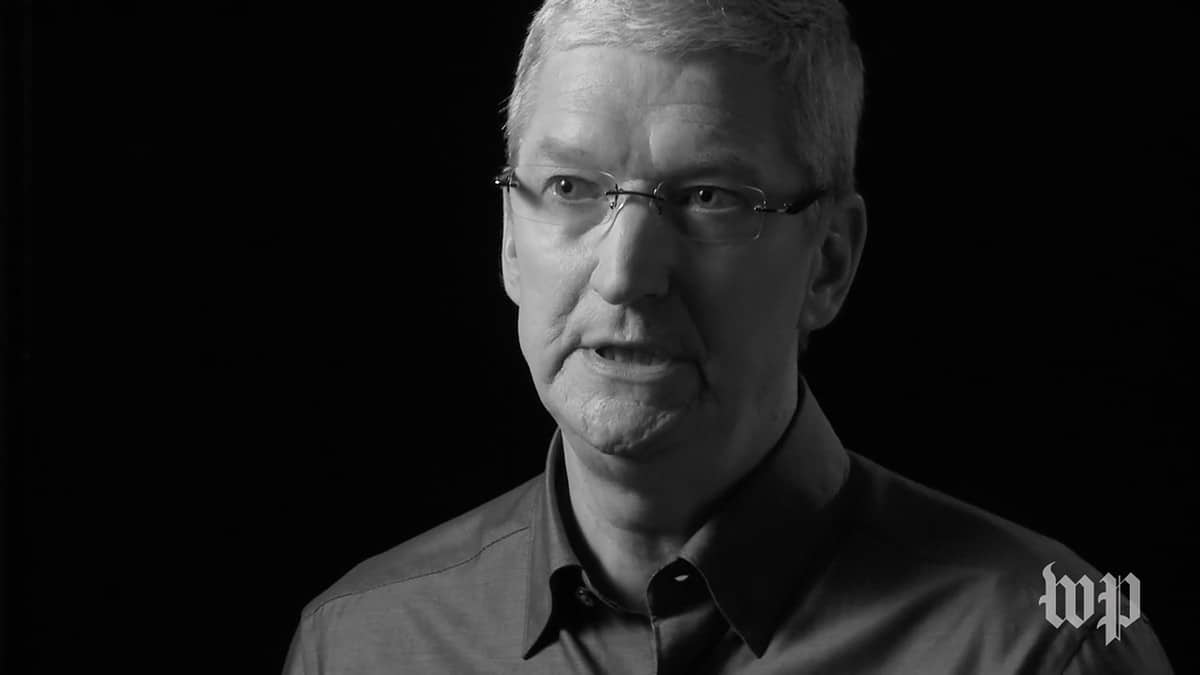Page 2 – The Secrets of AI and Apple’s Big Transformation
AI and Machine Learning
Tim Cook, in particular, has done interviews before—just as Steve Jobs did. What’s unprecedented, though, is the sheer number of interviews we’ve seen in the last several weeks, as well as the larger number of executives given access to the limelight. Make no mistake about it: this is a significant shift.

At first, I thought Tim Cook simply wanted more of Apple’s top stars to get the attention they deserved. But my thoughts on the subject changed with a story from distinguished journalist Steven Levy, writing for Backchannel. That’s when it hit me that something more fundamental and important was going on.
Mr. Levy’s story was about Apple’s efforts in artificial intelligence, machine learning, and neural nets. He was given access not only to Craig Federighi and Eddy Cue, but two of Apple’s top AI scientists—that’s all but unprecedented.
Equally unheard of was his tale of sitting down with these men and being given a printed portfolio detailing many (but not all) of the places where Apple is using AI and related technologies. And how. And why.
This just isn’t how apple operates. Or, rather, this isn’t how Apple used to operate. Apple’s penchant for secrecy has been heavily discussed when it comes to AI, in particular. No one had much of an idea what Apple was doing. In the absence of any news, the outside world reached the conclusion that Apple was behind in this field.
I’ve read stories about how Apple’s policy of not publishing papers was making it hard to recruit top AI researchers. Many other stories have said that Google, Microsoft, and even Amazon were leapfrogging Apple in AI. Come on, Amazon? Yes, Amazon. That’s the narrative being spun in the vacuum of Apple’s silence.
Shrinkage and Transformation
Once upon a time, Apple might not have cared about the stories being woven about it, but the company just turned in two quarters with year-over-year declines in revenue and earnings. This was the first time in 13 years Apple didn’t grow.
That is fuel for a negative narrative. We’ve all seen it. Apple has peaked; Apple can’t innovate any more; Apple is doomed. Blah blah blah.
Again, Apple might not normally care, but there’s another factor, too. Apple is in the midst of a major transformation, and that transformation includes longer product cycles for some devices. In the absence of information, major new products seem to be years out.
Tim Cook is making sure journalists don’t fill that void with nonsense. Steven Levy’s AI piece revealed how AI, machine learning, and neural nets are transforming Apple. We never get that kind of insight direct from Apple. By showing us, Apple has significantly shifted the narrative when it comes to Apple and innovation.
Those who are cranky about the lack of new Macs might argue this wouldn’t be necessary if Apple were taking care of its existing product lines. That’s probably true, but it’s obvious Apple has different thoughts about iterative improvements to things like the Mac, and maybe the iPad.
The decision to be more active in shaping its own narrative is part and parcel of Apple’s plan. It’s a sign that Tim Cook believes the larger transformation is more important than timely iterative updates. Many of us might not like that, but Tim Cook apparently thinks differently.
Mission Accomplished
Here’s the key point, though: the reality is that Apple’s outreach is working. This barrage of interviews and access has resulted in positive stories about Apple. Those stories have already reshaped the Apple narrative from “Apple can’t innovate” to “Apple is working these things behind the scenes.”
The AI stuff in particular served notice that Apple is a leader in this field, and that it is doing so on its own terms. That circumvents the bizarre notion that a company like Amazon was somehow ahead of Apple in this field.
Apple’s secrecy worked well for a long time, but Tim Cook is demonstrating his skills at finding new paths for Apple.

Jamie: “Apple used to buck fads, not follow them”
Can you give some examples of “fads” that Apple follows???
The only “fad” I can think of is the “fad” of becoming the largest, most profitable company in the world. (Not a bad “fad” to follow, at all! ;-)).
On the contrary, I think he is a terrific CEO, but Jobs was all of that and so much MORE. We do need to accept that he was one of-a -kind and that much died right along with him. However, a narrative without compelling products to back it up is pretty much just hyperbole, and though I’m happy Apple is as ethical as possible, they have been serving up a lot of hype since the iPad debuted. To be fair, so has everyone in tech, but Apple used to buck fads, not follow them.
So yes, he’s great at what he does, it’s just that what he is great at isn’t what made Apple great.
Excellent article, Bryan.
Too often we read disparaging comments about Time Cook not being like Steve Jobs. People might say that he is not an innovator like Steve Jobs, or he is not as good a presenter as Steve Jobs… In other words he is not Steve Jobs, but that obvious reality has never been an issue.
Apple under Tim Cook’s leadership, which actually began a few years BEFORE he became CEO, while Steve Jobs was ill and Tim Cook ran the company as the de facto leader, Apple saw its greatest growth.
Tim Cook may not be Steve Jobs (just as Steve Jobs did not have many of Tim Cook’s qualities), but in the most important ways he is very similar to Steve Jobs.
Both Cook and Jobs have had the same clear, long term vision for the company and its products.
Both Cook and Jobs have had the same ability to hire the right people to effectively carry on the work on current and future projects.
Both Cook and Jobs have had the same sense of integrity about the company, its employees, and its customers.
Both Cook and Jobs have been highly articulate and intelligent whenever they have spoken to he media and the public.
Both Cook and Jobs have had the same ability to know where their own strengths were, and to allow those with other qualities to perform without interference.
And both Cook and Jobs have together taken a company from near bankruptcy to become the largest, most profitable company in the world.